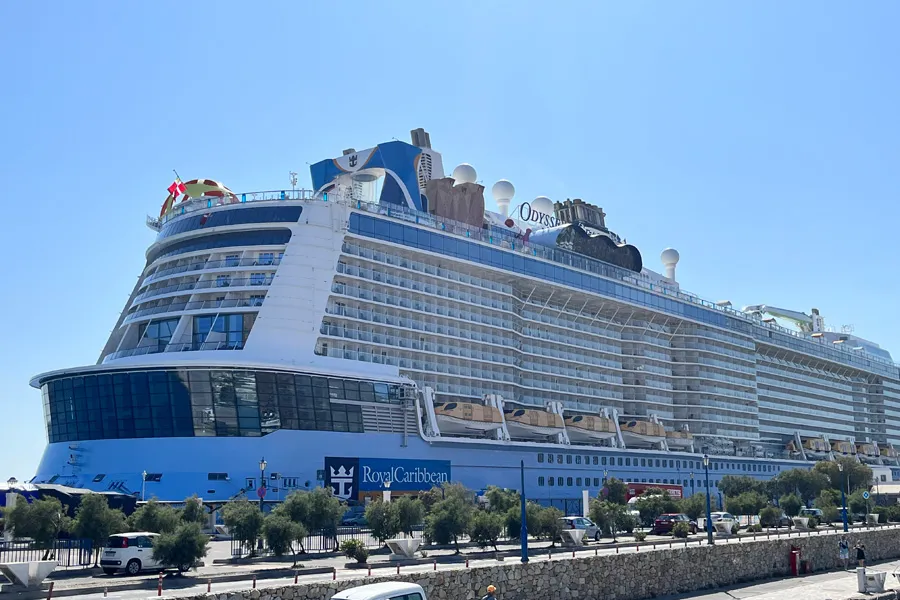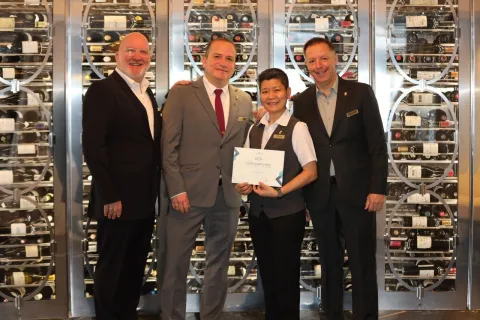
Working under an inspiring leader on a cruise ship is a rare gem. Having had the privilege of such an experience, I witnessed firsthand the incredible impact it had on my performance. If you aspire to be a respected and influential leader, motivating and empowering your team to unleash their full potential is crucial. Unlike bosses who train employees solely for their assigned tasks, true leaders empower their team members to utilize their talents in various capacities. Today's employees seek more than just task-oriented jobs; they yearn for opportunities to develop their skills and gain valuable experiences. Creating a clear career progression path and fostering skill advancement is equally important in the cruise ship industry.
Avoid Micromanagement
On cruise ships, two styles of delegation prevail: the gofer style and the stewardship style. Unfortunately, the former is more common among cruise ship managers, characterized by constantly hovering over employees' shoulders, seeking out their slightest mistakes. While this micromanagement approach may yield short-term results, it ultimately leads to burnout and high turnover rates.
Bosses micromanage by instructing employees on how to perform their jobs, while true leaders trust in their employees' knowledge and skills, empowering them to manage their own tasks. Leaders recognize the talent they have hired and grant them the freedom to utilize their abilities. Micromanagement stifles employee productivity and creates frustration. Instead, refrain from constantly monitoring your crew members; doing so will only decrease their productivity levels.
Provide Feedback and Support
Nothing is more disheartening than receiving a poor performance review or hearing complaints from a boss who has never provided guidance or feedback. Constructive feedback is essential for motivating and engaging employees. Most employees appreciate both positive and negative feedback as it helps them gauge their performance and identify areas for improvement. In addition to regular meetings, performance reviews, and one-on-one sessions, be willing to support your employees by mentoring them and helping them set goals. Never take the exceptional performance of crew members for granted. Learn how to provide balanced feedback that acknowledges their achievements and highlights areas for growth. Make it a habit to show appreciation for completed tasks and celebrate small milestones together, fostering a sense of importance and unity within the cruise ship team.
Encourage Collaboration Among Team Members
While bosses delegate tasks to employees and wait for results, leaders bring the team together to encourage idea-sharing and collaborative problem-solving. Leaders inspire and motivate employees to work collaboratively, harnessing their collective energy, knowledge, and experience to achieve remarkable outcomes on the cruise ship.
Recognize Employees for Their Contributions
Bosses often take credit for the work of others, but true leaders understand the power of recognizing and appreciating their employees' contributions. Leaders express genuine gratitude for their team's hard work and value them as individuals.
Unfortunately, the cruise ship industry has its share of selfish bosses who claim credit for successes while blaming employees for any failures. If you hold a supervisory role on the ship, be the leader who shares success and praises your crew members. When discussing the difference between good and bad bosses, employees emphasize the presence of leadership qualities in good managers versus the mere authority possessed by bad managers. Bad managers are described as self-absorbed, selfish, lazy, rude, arrogant, and untrustworthy. In contrast, good managers who are regarded as leaders are described as honest, supportive, trustworthy, respectful, and communicative. These distinctions matter significantly, as 77% of employees with bad managers plan to leave their jobs within a year, compared to only 18% of those with good managers. Turnover is costly, but enduring a company culture built around the whims of a bad manager is even worse.
Generally, a leader will take care of the bigger tasks and trust the smaller ones to the employees, but it's important to remember that when someone comes to you with a problem, it's all important.
For leadership to work effectively, you have to cultivate the right team. On the ship, promote the people with skills different from your own and empower them to do their jobs with as little interference as possible. Micromanaging is a sign of a weak boss, and leaders know that the people hired to do the job were hired because they could do it. Delegating authority to those working for you frees you to focus on more pressing matters. The essence of teamwork is that everyone works together using their specific skills to accomplish a shared goal. When that goal is accomplished, share the credit as well. Leaders recognize that no one gets to the top alone.
If you want your crew members to remain productive despite a stressful and hectic cruise ship environment, spend time to encourage and motivate your employees. If you take this leadership approach, there will be plenty of positive outcomes, as you will gain a huge level of respect from your teams. Once the crew members respect you, they will perform continuously at their maximum levels. Remember, on the cruise ship and on the land, regardless, respect is always earned, never given. Take care of your people.
Crew Insights
Articles and experiences shared by crew members working on cruise ship. Find out more about ship life at sea together with tips and advices for first time crew members and cruise oldtimers.












